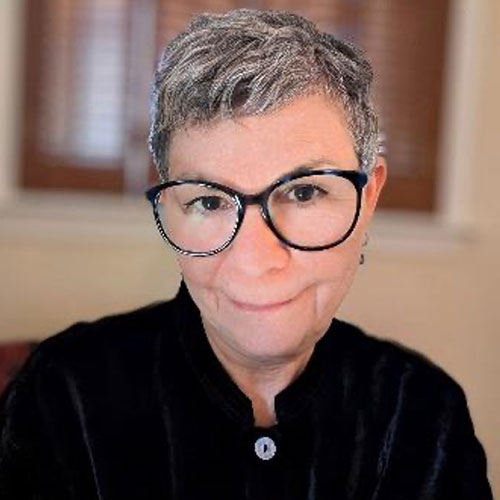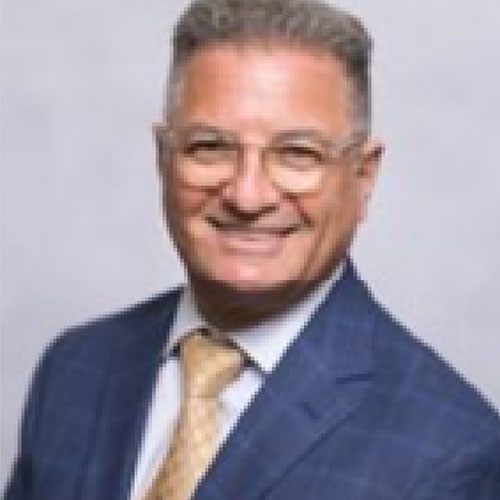As oral healthcare providers, dentists share responsibility for overall patient wellness with their medical and allied health colleagues. With growing awareness of the connection between oral health and overall health, the case for medical-dental integration is stronger than ever.

Toni. M. Roucka, RN, D.D.S., M.A., FACD
Professor Emerita, Marquette University School of Dentistry

Scott Tomar, D.M.D., Dr.P.H., FACD
Professor and Associate Dean for Prevention and Public Health Sciences, University of Illinois Chicago College of Dentistry; Immediate Past President, American Board of Dental Public Health
Historically siloed from one another, dentistry and medicine must now collaborate more intentionally to close care gaps, improve patient outcomes, and foster a more equitable and efficient healthcare system.
The longstanding divide between the professions has deep roots. When the first dental school was established in 1840 by physicians, the goal was to elevate the practice of dentistry. Ironically, this well-meaning initiative inadvertently initiated a separation in education, policy, and funding that has persisted for nearly two centuries.
This separation comes at a cost. Millions of Americans — especially those who are low-income, have disabilities, or live in rural areas — experience dental conditions that are treated in emergency departments, if at all. Integration efforts must prioritize these vulnerable populations, not just as a matter of efficiency or cost-saving, but as an ethical imperative.
While data on the systemic health benefits of dental treatment are mixed, the argument for integration cannot rest solely on individual metrics, such as reductions in hemoglobin A1C. Ethical reasoning must guide the push toward integration. Healthcare, including dental care, is a human right. Expanding access should not be contingent on secondary health benefits or economic savings, but on the principle of human dignity.
Moving toward true integration
The September 2024 American College of Dentists (ACD) Ethics Summit, entitled “Breaking Down the Silos: Dentistry’s Ethical Responsibility as a Partner in Healthcare,” took this challenge head-on. It brought together dental professionals, educators, researchers, and policymakers to confront the ethical and practical realities of integration. Participants explored models for team-based care, standardized protocols, and systems that prioritize collaboration. The group explored four essential pillars to successful medical-dental integration: education and training, practice models, research, and reimbursement.
As an example of such integration, recent Medicare expansions now cover dental procedures deemed medically necessary for patients with specific conditions, such as those undergoing cancer treatment or organ transplants. Still, even promising policy steps bring challenges. While expanded coverage appears to be a major leap forward, practical barriers remain, including a lack of provider awareness of the issues, insurance billing limitations, low reimbursement rates for providers, and administrative complexities that deter dentist participation.
True integration must move beyond isolated reforms. It should be envisioned as a spectrum, from simple referral networks between medical and dental practices to collocation, shared records, and unified care and research protocols. Bidirectional clinical efforts, such as fluoride varnish application in pediatric medical visits or tobacco cessation counseling in dental offices, demonstrate how small steps can have a significant impact on patient care when aligned under a common purpose.
Championing whole-patient care
The mission of the ACD is to advance excellence, ethics, professionalism, and leadership in dentistry. Among its core objectives are the promotion of the highest ethical standards, the stimulation of interprofessional relationships, and the encouragement of dentists to engage with the broader responsibilities of citizenship and social accountability. Ultimately, the integration of medicine and dentistry requires bold leadership, systemic investment, and an unwavering ethical foundation. Dental organizations, such as the ACD, are uniquely positioned to lead this transformation, championing a vision that affirms dental care as essential healthcare and partnering with medical and allied health organizations to benefit whole-patient care.
We must no longer ask whether oral health matters for overall health. It does. Instead, we must ask: How can we design a system that centers on patients, respects their dignity, and ensures that no one suffers unnecessarily from preventable oral diseases? By embracing shared responsibility, dentistry can break down silos and build a healthcare system that truly serves the whole person.

